- Home
- Anne Hampson
Blue Hills of Sintra
Blue Hills of Sintra Read online
BLUE HILLS OF SINTRA
Anne Hampson
Eleanor was delighted when the Portuguese Conde Ramiro Vicente Miguel de Castro offered her a job — as companion to his young sister, in the splendid Castro family home at Sintra. It was a chance that was not likely to come her way again, and she was looking forward to a pleasant summer — nothing more.
But that was before she made the mistake of falling in love with her exalted employer. For, even if he should ever come to consider her worthy of his notice — which seemed highly unlikely — there was still that mystery about his late wife.
CHAPTER ONE
Eleanor Salway paused before entering the Principal’s room, automatically patting her fair hair, and flicking the ends from her shoulders.
A smile greeted her from the stately grey-haired woman seated at the desk.
‘Sit down, Miss Salway.’ The voice was low and cultured, with the merest trace of a Scots accent. Miss Crossland had been Principal of the Bailey College of Education for eleven years and her bearing and confidence had long been the envy of her students. Although there were over a hundred of these students in Eleanor’s year, Miss Crossland was giving each a personal interview before she left the college. ‘I expect you’re feeling a little sad,’ she said, still smiling as Eleanor took possession of the chair at the opposite side of the large wide desk.
‘Yes, I do feel sad.’ Her hazel eyes were open and honest; from the first Eleanor had been on the very best of terms with the Principal. ‘I almost wish I were right back at the beginning. It’s been a wonderful three years, Miss Crossland, and I do thank you for everything.’
The older woman merely smiled at this, and presently began to talk about Eleanor’s conduct as a student, which had been exemplary. She unsparingly gave praise for the useful part Eleanor had played in the social side of college activities and ended by bringing the colour to her listener’s cheeks as she said,
‘Any school at which you teach, Miss Salway, will be the richer for having you.’ She rose and Eleanor followed suit. A hand was extended and Eleanor put hers into it.
‘Thank you again, Miss Crossland—’ She broke off, blinking rapidly and terrified of a tear escaping on to her lashes. ‘Th-thank you.’
At the door she turned. The Principal was still standing, a smile on her face, and looking rather more dignified than ever before in her voluminous black gown.
‘What was it like?’ from the next student waiting outside the door, which Eleanor had closed behind her.
‘I was full up—right to choking point! ’
‘Softie! I believe you could go on being a student all your life.’
‘I’d love another year,’ admitted Eleanor, moving away so that Susan could take her place by the door.
‘Not me! Lord, how they’ve worked us! I wouldn’t go through all that again for a king’s ransom! I’m just dying to get out and earn some money.’
A few minutes later Eleanor was wandering aimlessly through the college, entering the library, and standing for a while reflecting on how fortunate she had been, having it at her disposal for three marvellous years. She wandered into several of the lecture rooms, then the Common Room, where students were sitting in groups, chatting. First and second years ... How she envied them!
The refectory was the place where most of the third-year students had gathered and Eleanor was hailed immediately she entered.
‘I’ll get my coffee first.’ She went to the hatch, received her coffee from the smiling woman who had served her that very first morning, when she had felt so strange, and lost. Carrying the drink to a table where five of her friends sat, Eleanor took the chair one of them had drawn out for her. ‘Isn’t it horrid?’
‘The atmosphere?’ Doreen Evans smiled and shrugged. ‘It’s been horrid for weeks—knowing we were at the end. Parting, and sweet sorrow, and all that.’
The others nodded. Eleanor glanced at them in turn—the important people who had helped to make life such a pleasure, the people she had met during the first month and who would now become pen-friends ... for a while. It would be far easier not to write, eventually, when they were all busy living their separate lives.
‘We must never lose touch—never!’ Jane Hulse was saying this even now, as Eleanor was looking at her. She meant it— they all did, but nothing was so sure than that they would lose touch.
Mary Osburne agreed wholeheartedly. They had been such good pals; they could not possibly lose touch.
‘What are we doing here?’ The question came half an hour later from Jane. ‘We were free to go after our interviews with Miss Crossland. Why don’t we make tracks?’
‘Because we’re hanging on to every precious moment,’ replied Eleanor, and the others nodded in instant agreement.
There was nothing left except the going-down service to be held the following day at the cathedral, and so it was not surprising that the girls wanted only to remain in college until the last minute. However, they eventually rose and made for the cloakrooms, where they all went their separate ways, going to their lockers for the very last time. Handing over the keys yesterday had in fact been the final relinquishing of the lockers, but possessively they had used them again today.
Eleanor was on her way out, accompanied by Doreen and Jane, who caught their buses at the same stop as Eleanor, when one of the tutors said,
‘Goodbye, girls, and the best of luck.’ A glance at Eleanor and then, in a curious tone, ‘You saw the notice-board?’
She shook her head. No one expected notices today, when all that the third years had come in for was the interviews with the Principal. And by no means all of them had come in, as the interviews had been going on for more than a week, and Eleanor’s batch was just about the last.
‘There was a notice for me?’
‘From Mr. Kershawe,’ the tutor said in an expressionless voice. ‘He wants to see you.’
‘Thank you, Miss Yates.’ Eleanor was frowning heavily. Mr. Kershawe, the tutor who had taken her for the curriculum subject of maths, had been the only person in the whole of the college whom she could say she thoroughly disliked. His tutorship had ended after the first year, and Eleanor had breathed a sigh of relief on leaving his lecture room for the last time. But he had continued to pester her, and although other students had expressed pity for him, telling Eleanor she was heartless in the way she treated him, she herself considered him in the light of a nuisance, who at every opportunity—and these came during social activities—would seek her out, would sit near her, and would talk, telling her how beautiful she was and that she was the only girl he could ever love. Had they been in any other circumstances she could have told him off, cooling his ardour for ever; as it was she had to afford him respect, he being a tutor and she a student. ‘If only I’d got out before she came along,’ she said angrily as soon as Miss Yates had left the hall. ‘I’ve a good mind not to go.’
The others laughed.
‘I expect he wants to propose,’ suggested Jane, and received a scowl for her trouble.
‘You’ll have to go,’ said Doreen. ‘Miss Yates will be bound to mention that she gave you the message.’ Shrugging impatiently Eleanor said goodbye to her friends and made for the lift. In a short space of time she was in Terry Kershawe’s room and he was looking her over admiringly, deliberately keeping her waiting as he did so.
‘If you will tell me what you want,’ she said curtly, ‘I will then be able to go home. I have things to do this afternoon.’ His eyes glinted. He had a shallowness about him which had impressed Eleanor from the moment he had begun to practise his unprofessional conduct in seeking her out from among the other students. His mouth was cruel and thin, his eyes far too close together.
‘Y
ou can speak to me like that now that you’re leaving.’ His voice was so pleasant that she instantly became suspicious. Nevertheless, she was totally unprepared for what he was to say next. ‘It may interest you to know that I’m to be your headmaster—’
‘My headmaster!’ She stared at him uncomprehendingly.
‘You’re leaving the college?’
A small silence followed. He appeared to be relishing the situation.
‘You’re going to Ashford Park School. You know that the headmaster is retiring next month—in July. You’ve surely been told this?’
‘Of course. I learned of it at my interview with the local education authority. ’
‘Well, Eleanor, I applied for the post and got it. So you see, we’re not to say goodbye. In September, when you take up your first teaching post, I shall be there too.’
Eleanor could not forget this conversation she had had with the objectionable Mr. Kershawe; she thought about it all through the cathedral service the next day. To have him for her first headmaster! It meant that her probationary year was to be utterly spoiled. After that, she could leave the school and find a post elsewhere. In the meantime, though, life was to be more than a little unpleasant.
‘You might as well say you’ll marry me,’ he had said as she was about to leave him yesterday. ‘You can’t escape your destiny, and I knew the moment I saw you, sitting there in your desk, looking so young and innocent—you were eighteen but looked much younger—I knew, my dear, that we should come together. ’
The city air had seemed inordinately sweet and pure as she stepped out of the front entrance of the college. Terry Kershawe had cured her nostalgia, and she hated him for it.
She was still thinking about him when, having procured a temporary post at the famous Sherbourne Hotel in London, Eleanor went along the following Monday morning and presented herself to the undermanager.
‘You’re a long way from home,’ was his first comment as he looked her over and took note of the neat black dress peeping from beneath a white mackintosh. An immaculate white collar fitted closely to her neck; her hair was tied back with a black velvet ribbon.
‘I’m from Manchester,’ she told him.
‘How did you come to get the job of room-maid here?’
‘I heard that you take students in vacation time, so I applied.’ She looked at him. ‘Another man interviewed me; you were on holiday. ’
‘That’s right. You take up your teaching post in September, I understand?’
‘Yes, that’s right.’
‘So you’re to be with us for about seven weeks?’
‘Six. I’m having a week with my friend here. She’s a nurse and this is a good opportunity for us to have a holiday together.’
‘A nurse? Where does she work? I have a sister at the Middlesex Hospital.’
‘June’s at a nursing home—a private one.’ She mentioned the name and his eyes widened.
‘The most expensive—and exclusive—in London.’
‘So I believe. She loves being there. We went to school together,’ she added, feeling pleasantly at home with this young man and wondering if he were as friendly as this with all his subordinates.
‘Well, Miss Salway, now that we’ve got to know one another I’ll hand you over to the supervisor. She’ll tell you what rooms you’re to look after. We have other students here, so I’m sure you’ll be happy.’ He rang the bell and while they waited for the appearance of the supervisor Eleanor ventured to ask if they had any celebrities staying in the hotel at present. They always had celebrities, he told her, and casually mentioned a couple of film stars who were in two of the special suites, but went on to say that the blue and gold suite, without doubt the most lavish in the whole of London, was occupied by the Conde Ramiro Vicente Miguel de Castro, a Portuguese nobleman from the southern half of the country.
‘Is he on holiday?’ she asked, wondering if she would see this man with so illustrious a name, and wondering too if one had to use the whole string of names when addressing him.
‘We have no idea. He is quite alone and speaks only when it is absolutely necessary.’
Eleanor saw the Conde the very next day. Having been instructed to see to the suite next to his, she happened to be going in as he came from the lift. Their eyes met for one fleeting second before, turning away, he strode along the thickly-carpeted corridor towards the arched alcove which formed the entrance to his suite. Fascinated by his appearance, Eleanor stared after his tall figure until it disappeared from view. What an arresting face! Full of character, arrogance and superiority. In that fleeting glimpse of him she had instantly been struck by those superlative features, had subconsciously used the word perfection to describe them. The smooth suntanned skin and high cheekbones that seemed more pronounced owing to the leanness of the cheeks beneath them; the formidable line of the jaw, firm and also prominent. The mouth was tight, the eyes hard, like deep grey metal. His bearing was regal and confident ... and yet Eleanor had the peculiar sensation of having seen a man whose confidence and pride had received a shattering blow. Was it the way he looked?—with some strange shade of anxiety in his eyes? He had seen Eleanor, certainly, but she had the impression that his mind had not registered anything at all about her. He would not know if she were to see her again, she told herself—but she was to discover that this conclusion was entirely wrong.
‘Miss Webber,’ she was saying at seven o’clock that evening, ‘is it all right if I go out when I’m off duty?’
The supervisor looked faintly surprised.
‘Of course. Didn’t anyone tell you?’
‘No.’ Eleanor paused a moment. ‘Do I have to be in at any certain time?’
‘You’re going to a late show or something?’
Eleanor shook her head, going on to say that her friend worked in a nursing home a few miles away and, having phoned her at tea time, Eleanor had learned that she could
visit her while she was on duty.
‘I’d like to stay a couple of hours or so,’ she added. ‘We haven’t seen each other since last summer.’
‘That’s quite all right, Miss Salway. You can come in just whenever you like.’
The nursing home was set in extensive grounds, having at one time been the ancestral house of a distinguished titled family. June had told Eleanor that the fees were quite fantastically high, and only the wealthy could afford to go there for treatment.
‘It’s lovely to see you again!’ June said enthusiastically when Eleanor arrived. ‘Come into the rest-room. There are more of us here than necessary, so if any of us have a visitor the others manage without us. There isn’t much to do on night duty anyway, not once the patients are settled with their malt drinks and the television. I think half of them come in here for a rest cure. We’ve at least a dozen with nothing more serious than lazyitis!’ Laughing, she led the way to the tastefully furnished and carpeted rest-room where the nurses relaxed, or took turns in having a nap during the night and early hours of the morning. Accepting the chair offered, Eleanor glanced around, taking in the large settee and matching chairs, the occasional tables, the radio and the flowers.
‘This is very pleasant,’ she observed, smiling at her friend. ‘No wonder you like working here.’
‘Everything about the place is luxurious—and I do love luxury, even if it is secondhand, as it were.’ She was laughing with her big blue eyes as she looked down at Eleanor. ‘But what about you?—working at the Sherbourne! How lucky you are! Now that is luxury indeed! You must tell me about the guests—but I’ll get us some coffee first. Or do you prefer tea?’
‘Coffee will do nicely, thanks, June.’
‘Okay; I’ll not be more than a jiff! ’ June stopped at the door and turned. ‘I forgot to congratulate you on passing everything and getting your certificate. Is it very impressive—written in gold, with curls and whatnots all along the edge?’
Eleanor laughed and said she had not yet received the actual certificate, but she did have
a post to go to in September.
‘I told you that, though, in my letter.’
June nodded and went out, returning a short while later with a tray.
‘Tell me about all the celebs who are staying at the hotel? I read about the film stars, of course, and I know you’ve a Portuguese count—’
‘You do? How?’
A small hesitation as if June were undecided.
‘It’s all very hush-hush, but I expect I can tell you. We have his sister here—having a baby.’ June ended on a dramatic note which registered but which conveyed nothing.
‘Imagine that! I did wonder what he was doing in London, because I’ve heard he never goes out except for a couple of hours in the morning and again in the evening. He visits her at those times?’
June nodded, saying he was expected any moment now.
‘Dona Carlota is only just sixteen,’ she added slowly, ‘and not married. ’
‘Not married?’ Eleanor instantly recalled her impression of having seen a man whose pride had received a shattering blow. ‘How awful—for a family like that.’
Again June nodded. She was pouring the coffee, her face towards the low wide window, from which light streamed forth on to the macadamed space which fronted it. A car drew up softly; Eleanor caught a glimpse of silver over the radiator and realized it was a crest. The man alighted close to the window and briefly peered in as he closed the car door. Eleanor saw with some considerable surprise that he recognized her, for he gave a slight start before turning away towards the entrance a few yards to his right.
‘He’s so magnificent ... ’ Eleanor spoke almost inaudibly, her eyes pensively fixed on his departing back.
‘We’ve dubbed him the King of Portugal,’ returned June with a grimace as she handed Eleanor her coffee. ‘The disgrace which his sister has brought to him hasn’t taken any of the pomp out of him.’
‘I thought he looked troubled, when I saw him for a moment today. What’s the girl like?’
‘Ravishingly beautiful,’ came the prompt reply. ‘I wonder what her brother said when he knew. I’ll bet she squirmed for weeks! He’s brought her here so that it can all be kept secret, of course.’

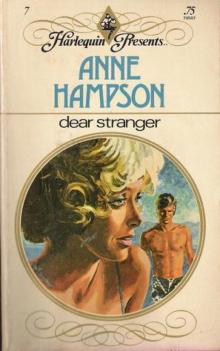 Dear Stranger
Dear Stranger Dangerous Friendship
Dangerous Friendship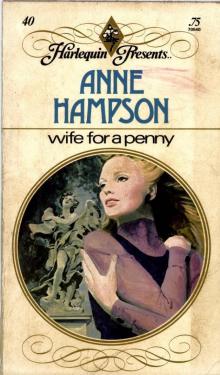 Wife for a Penny
Wife for a Penny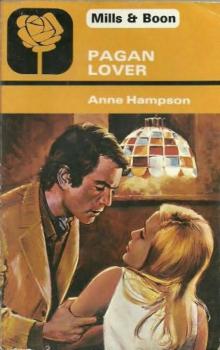 Pagan Lover
Pagan Lover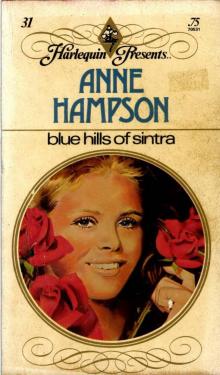 Blue Hills of Sintra
Blue Hills of Sintra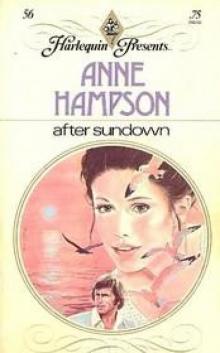 After Sundown
After Sundown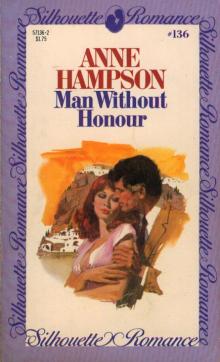 Man Without Honour
Man Without Honour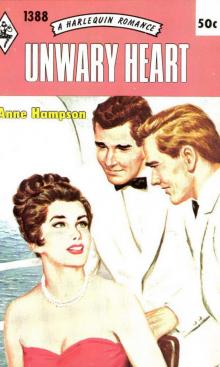 Unwary Heart
Unwary Heart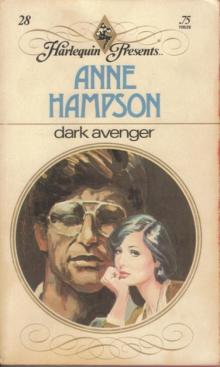 Dark Avenger
Dark Avenger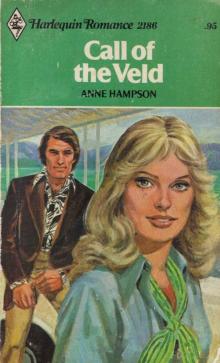 Anne Hampson - Call of The Veld
Anne Hampson - Call of The Veld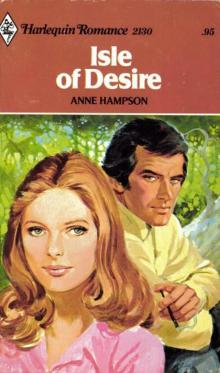 Isle of Desire
Isle of Desire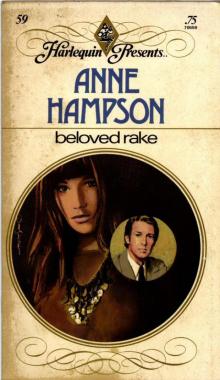 Beloved Rake
Beloved Rake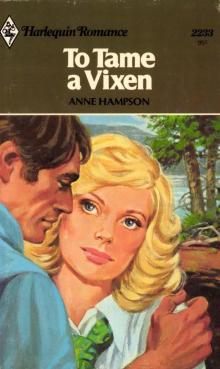 To Tame a Vixen
To Tame a Vixen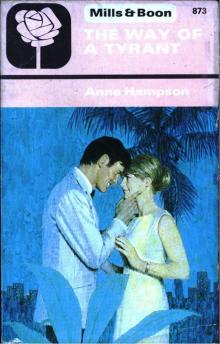 The Way of a Tyrant
The Way of a Tyrant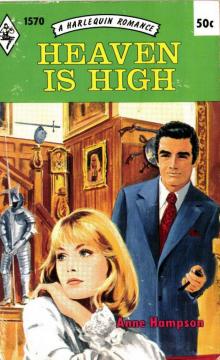 Heaven is High
Heaven is High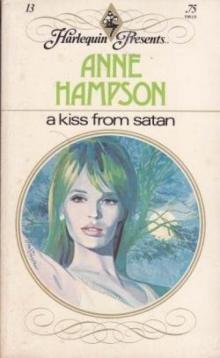 A Kiss From Satan
A Kiss From Satan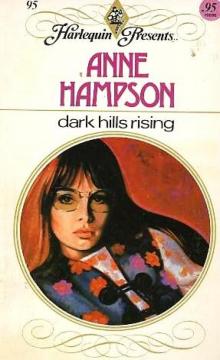 Dark Hills Rising
Dark Hills Rising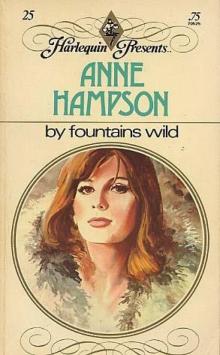 By Fountains Wild
By Fountains Wild Second Tomorrow
Second Tomorrow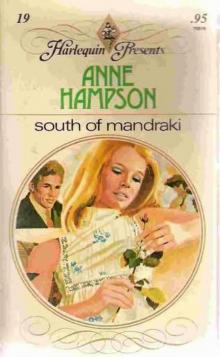 South of Mandraki
South of Mandraki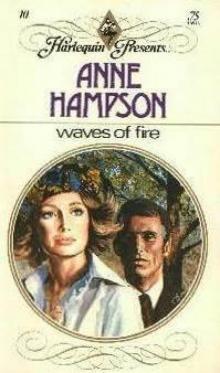 Waves of Fire
Waves of Fire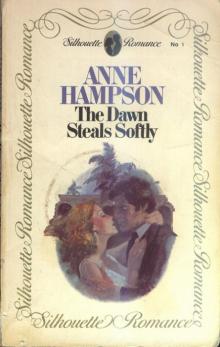 The Dawn Steals Softly
The Dawn Steals Softly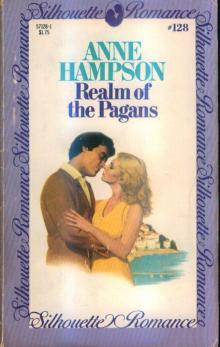 Realm of the Pagans
Realm of the Pagans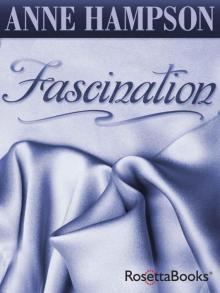 Fascination
Fascination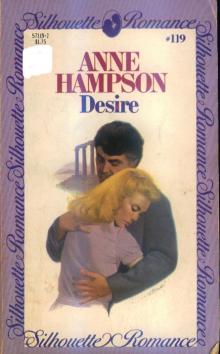 Desire
Desire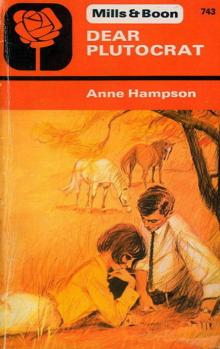 Dear Plutocrat
Dear Plutocrat Strangers May Marry
Strangers May Marry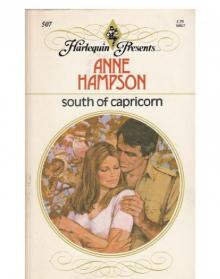 South of Capricorn
South of Capricorn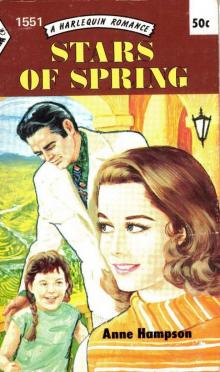 Stars of Spring
Stars of Spring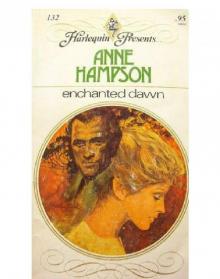 Enchanted Dawn
Enchanted Dawn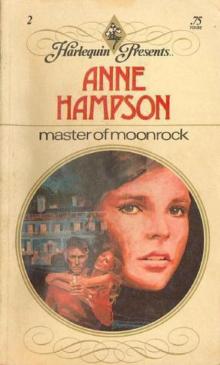 Master of Moonrock
Master of Moonrock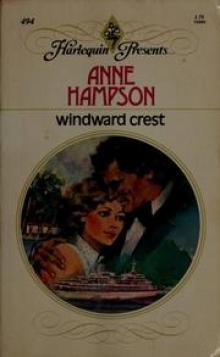 Windward Crest
Windward Crest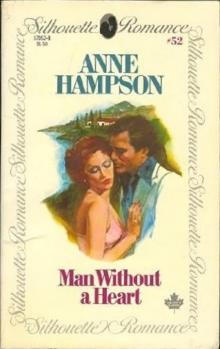 Man Without a Heart
Man Without a Heart